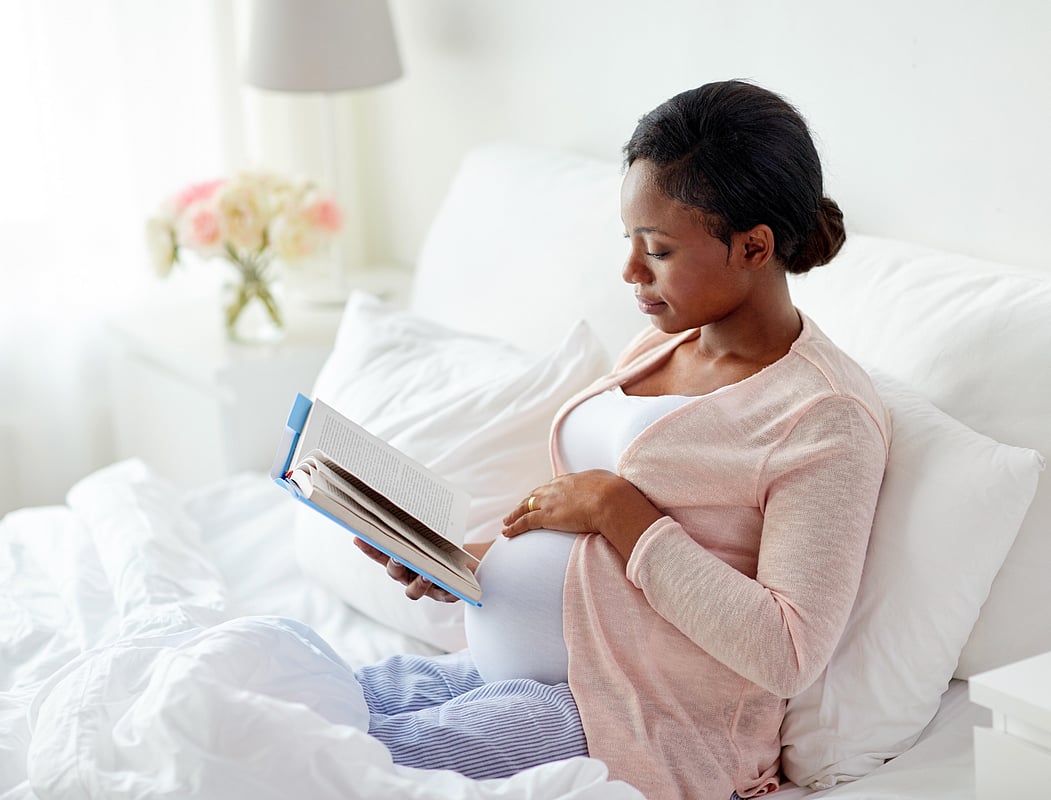Many Challenges, But Pandemic Wasn’t All Bad for New Moms

MONDAY, Feb. 21, 2022 (HealthDay News) -- While new mothers have faced many challenges due to the COVID-19 pandemic, it had at least one positive impact, a new survey shows: They were able to have more quiet time with their newborns.
That's a key finding of the first known study to assess the experiences of U.S. women who had babies in the pandemic's first six months.
The women reported increased emotional distress, breastfeeding difficulties and unexpected changes in birthing plans. Social distancing and infection control measures fueled increased guilt, isolation and depression, and many new moms weren't taught how to cope or lacked support, the survey revealed.
"Moms said they felt like no matter what they did, it was wrong," said study first author Clayton Shuman, an assistant professor of nursing at the University of Michigan in Ann Arbor. While some increase in emotional distress and guilt was expected, he said he was surprised by the extent of it.
New mothers surveyed also reported less assistance with breastfeeding, which resulted in more stress and lower milk supply in some.
"You'd think more time at home would lead to better breastfeeding, but it did not," Shuman said in a university news release. "Because of the pandemic, many resources weren't offered or were in a format that wasn't helpful. Doing a lactation consultation on Zoom was viewed by many as intrusive and uncomfortable."
COVID-19 also forced some women to switch their birthing plans — for example, having an out-of-hospital birth instead of one in a hospital, or electing to induce labor. One woman whose doula was barred from attending her birth said the situation was "heartbreaking."
In all, 675 new moms recruited on social media participated in the survey. Most were white and married and delivered a full-term baby.
If there was a silver lining, many women were grateful for the quiet time they had after giving birth due to restrictions on the number of visitors at the hospital and at home, according to the report, which was published recently in the Maternal and Child Health Journal.
Shuman said the pandemic highlighted problems with the United States' cookie-cutter approach to maternal care.
"Providing a one-size-fits-all approach to maternal care isn't working," he said. "Because of mental health issues, we need tailored care — some do well with telehealth but not all. Prenatal and postpartum visit schedules should also be tailored to individuals, especially for new moms."
More information
For more on pregnancy and giving birth during COVID-19, go to the U.S. Centers for Disease Control and Prevention.
SOURCE: University of Michigan, news release, Feb. 17, 2022
Related Posts
Cyclone Excess Death Count Varies by Storm, Social Vulnerability
FRIDAY, Aug. 18, 2023 (HealthDay News) -- In the United States, there has been...
Hurricanes Threaten Many U.S. Coastal Hospitals With Serious Flooding
THURSDAY, Sept. 29, 2022 (HealthDay News) -- As Hurricane Ian slams Florida, a...
Los perros perceptivos pueden oler su estrés
JUEVES, 29 de septiembre de 2022 (HealthDay News) -- Todo el mundo sabe que los...
